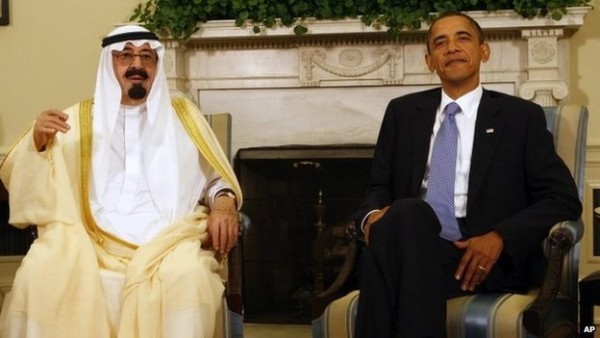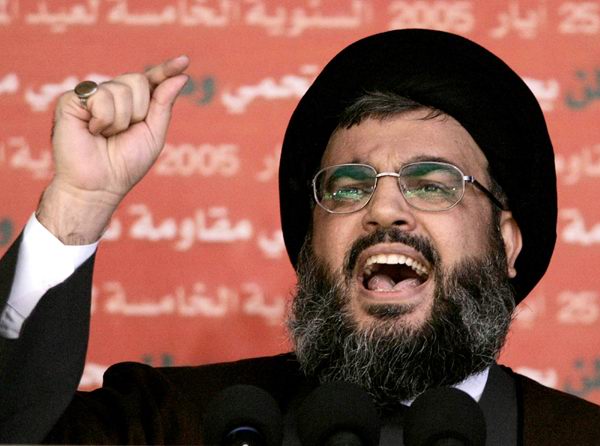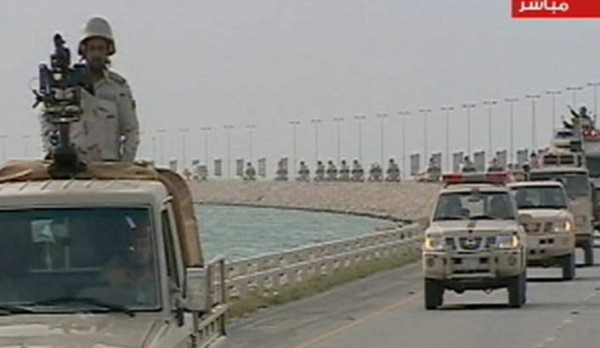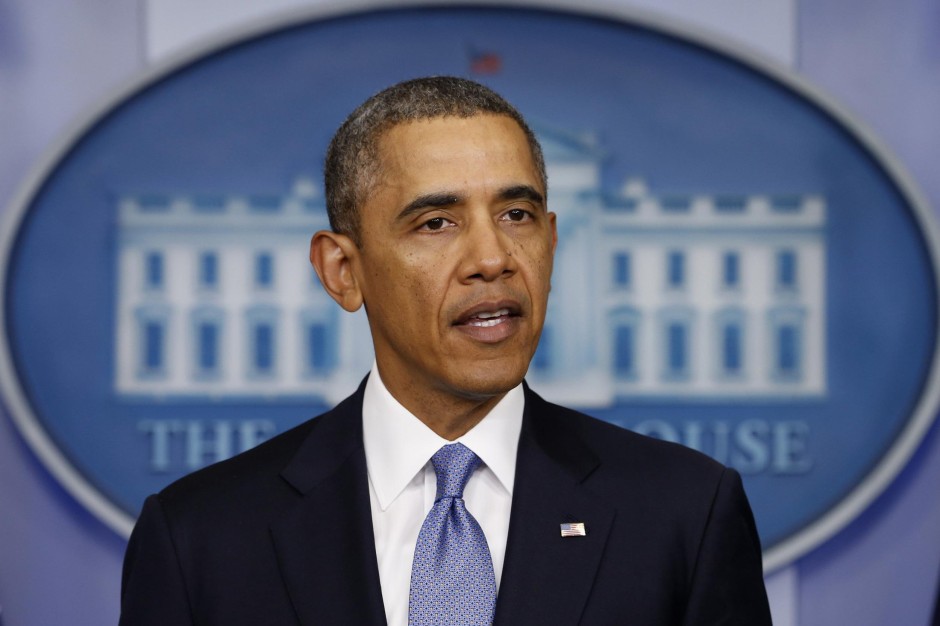Concerned by the serious strains clouding its strategic relationship with Saudi Arabia, the United States is striving to patch up yawning differences with its oil-rich Arab ally over key regional issues.
Late last week, U.S. President Barack Obama visited Riyadh, the Saudi capital, in an attempt to improve relations. It was his second trip to Saudi Arabia since 2009. He was accompanied by, among others, Secretary of State John Kerry and the national security advisor, Susan Rice, signifying the importance the United States attaches to its bilateral relations with Saudi Arabia.
Obama conferred with King Abdullah as they focused on Iran, Syria and Egypt.

Iran, a Shiite power with hegemonic ambitions, is of enormous concern to Saudi Arabia, a conservative Sunni monarchy. Saudi Arabia fears that its regional rival is increasing its influence in the Middle East, particularly in Syria and Iraq, at its expense.
First and foremost, the Saudis fear Iran’s nuclear program, which has made great strides in the past few years. Like the Israelis, they believe that the Obama administration, in signing an interim agreement with Iran last November, moved too quickly to end some of the economic sanctions against Tehran in exchange for a partial suspension of its enrichment program and a partial reduction of its uranium stockpile.
Saudi Arabia has threatened to build its own nuclear arsenal should Iran acquire atomic weapons.
Documents released by American whistle blower Edward Snowden reveal that Saudi Arabia was ready to support an Israeli preemptive strike on Iran’s nuclear sites.
For the Saudi Arabian leadership, the nightmare scenario is that the United States will forge a rapprochement with Iran should a permanent nuclear agreement be signed. The United States and Iran share a mutual interest in combating Al Qaeda in such countries as Syria, Iraq and Yemen. It will be recalled that Iran, in the wake of 9/11, supplied the United States with intelligence data on Al Qaeda.
The Saudis have urged the United States to arm rebel fighters in Syria opposed to President Bashar Assad’s Alawite minority regime, but Washington has stopped short of giving them weapons, fearing they may fall into the hands of Islamic radicals.
In the meantime, Saudi Arabia is sending weapons and munitions to the rebels, hoping they can eventually topple Assad, who’s supported to the hilt by Iran and its Lebanese proxy, Hezbollah. It isn’t entirely clear which rebel formations the Saudis are backing militarily, but they may be supporting Islamic fundamentalist fighters more in tune with their staunchly orthodox brand of Islam.
The civil war in Syria has certainly exacerbated tensions between Saudi Arabia and Hezbollah. Hassan Nasrallah, Hezbollah’s leader, has blamed the Saudis for the bombing of Iran’s embassy in Beirut last November.

King Abdullah reportedly remains furious with the United States for having backed away from an explicit threat to bomb Syria over its use of chemical weapons last August. Instead of punishing Syria for crossing this “red line,” Obama joined Russia in a scheme to eliminate Syria’s stocks of chemical weapons, a plan that implicitly legitimized Assad’s rule and will have no discernible effect on the outcome of the war.
Saudi Arabia, too, was angered by Washington’s response to the Arab Spring rebellion in Egypt in 2011.
While the Saudis supported Egypt’s long-time president, Hosni Mubarak, the United States abandoned him to his fate after only 18 days of unrest, creating the impression that the Obama administration is not a reliable partner and sending shock waves through the House of Saud.
Unlike the United States, Saudi Arabia was all in favor of the coup that resulted in the ouster of Mohammed Morsi, Egypt’s first democratically elected president, last July.
There is no love lost between the Saudi government and the Muslim Brotherhood, the organization from which Morsi, a U.S.-educated engineer, emerged. The Saudis fear that grass-roots Islamic groups like the Muslim Brotherhood may inspire internal revolts elsewhere in the Arab world, especially Saudi Arabia.
In a tangible sign of its support for Abdul-Fattah el-Sisi, the former Egyptian defence minister who toppled Morsi and who recently announced his intention to run for the presidency, Saudi Arabia and a consortium of like-minded Arab nations have given Egypt more than $15 billion in loans and aid.
By contrast, in a show of disapproval for the military-backed interim government in Cairo, the United States has suspended deliveries of military equipment to Egypt.
Given its disagreements with the United States,Saudi Arabia has taken unilateral steps to position itself as a player in the Middle East.

In the winter of 2011, the Saudis sent troops to Bahrain to rescue the Sunni monarchy from a pro-democracy uprising by his majority Shiite subjects.
Last October, in a sign of deep displeasure with United Nations impotence in Syria and with American policy in the Middle East, Saudi Arabia, in an unprecedented move, rejected a seat on the UN Security Council.
The United States and Saudi Arabia are still at odds over critical issues, and it would appear that Obama failed to bridge these gaps during his most recent trip to Riyadh.
